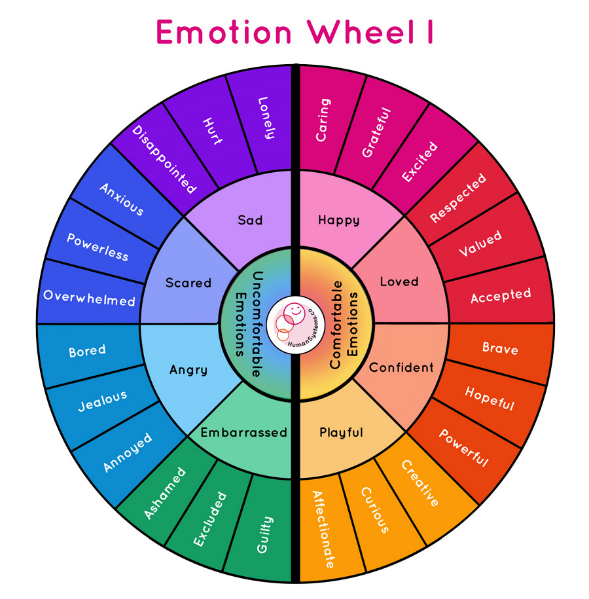HIGH SCHOOL PARENTS: TIPS FOR MANAGING YOUR CHILD’S JOURNEY
As your child enters the high school years, parenting can become more challenging and complex. Balancing their growing independence with your desire to keep them safe and on track can sometimes feel like walking a tightrope. With so many physical and emotional changes happening, it's important to approach parenting a high schooler with care and consideration, an education expert says.
“We have seen a sharp increase in the number of students experiencing anxiety. This is due to a greater demand on both children and adults to perform and contribute meaningfully to an ever-changing society,” says Candice Erasmus, Head of Student Behaviour and Wellbeing at Abbotts College Pretoria-East.
“These demands result in an increased number of stressors which could be financial, emotional and social. High school students often feel very overwhelmed by the workload, social expectations and navigating their school and social environments. Furthermore, due to their pre-frontal cortex not being fully developed yet, they may struggle with planning efficiently, time management and being organised, which further adds to their feelings of anxiety,” she says.
She says parents who are concerned about their child’s anxiety levels, can do the following:
- Be a “safe haven” for your child. After COVID, a number of children have lost social connection and need a safe place to talk. Consider this safe haven as a harbour for a ship. The ship leaves the habour to explore but it always comes back to the safety of the harbour.
- The demand on parents is intense in the current economic climate, however, fostering social connection in a family can be as easy as finding opportunities to eat together, play board games and take walks/exercise together. Don’t underestimate the importance of these opportunities for connection.
- Taking time to assist your child with planning, managing their time and organising their academic and social events may help relieve some potential stressors.
- Teach your children about Mindfulness. You might not have these tools but there are amazing platforms that have great mindfulness tools, such as Spotify and YouTube.
DEALING WITH IDENTITY CHALLENGES
All adolescents go through a time called identity formation. During this time they need to engage in a safe exploration of their interests and hobbies, which will allow them to form who they are, what their likes and dislikes are and, furthermore, what their value system is.
Parents can do the following to assist their children in developing their identity:
- Find opportunities to engage with your child about their likes and dislikes and ask them about the experiences that led them to their decision.
- Explore different fields of interest and how that could lead to a career.
- Allow them to engage in discussions about their opinions, interests and values.
Boundaries and peer pressure are a continuum of deficiency of identity. If a child struggles to set boundaries, they tend to struggle to form their own identity and vice versa. This in turn causes a feedback loop with anxiety. This also leads children to be more vulnerable to peer pressure as they have not set their value system and therefore struggle to say NO.
Parents can do the following to assist their children in developing their boundaries:
- Have a family meeting, in this you as a family can set the house rules and the consequences of breaking these rules.
- Allow for appropriate boundary-setting in your family and encourage a respect for each other’s boundaries.
- Use opportunities that are seen on TV or experiences to discuss boundaries and the social/personal consequences of not setting boundaries.
- Discuss the short-term and long-term consequences of decision-making due to peer pressure for example drug usage, underage drinking and being sexually active.
- It is important to allow appropriate decision-making to take place and then allow your child to feel the consequences of their decision-making (in the less consequential choices). You as a parent can help them look at the points to consider.
EMOTIONAL REGULATION
Adolescents have a tough time regulating their emotions for several reasons such as hormonal fluctuations and a developing prefrontal cortex where regulation takes place. We have seen an increase in students who struggle to identify and express their emotions in different settings.
Parents can do the following to assist their children in developing their emotional regulation:
- Parents can put up an emotional wheel in the house, (https://humansystems.co/emotionwheels has three wheels that cater for different age groups). This wheel helps parents to teach children how to name what they are feeling (identify), this in turn helps the children to understand what other people may be feeling which will help them form better social relationships.

- Allow and assist your child to feel the emotion. We all have a tendency to hurry an emotion, but it is so important to feel the emotion and understand that feelings/emotions come and go.
- Encourage emotional regulation activities such as writing, drawing or dancing to express and release emotions.
NUTRITION AND SLEEP
Lack of good nutrition and poor sleep habits can have a significant impact on high school students' academic performance, physical health and emotional well-being. Unfortunately, many students are not getting the nutrients they need to fuel their bodies and brains and they are also not getting enough restorative sleep. This can result in decreased concentration, poor memory, irritability and even depression.
Parents can do the following to assist their children in developing good eating and sleep habits:
- Limit sugar and caffeine (Monster energy drinks, Red Bull and Switch to name a few)
- Promote a healthy, balanced diet including fruits and vegetables, protein and healthy carbohydrates. Limit processed foods and fast foods.
- Encourage healthy sleep hygiene which includes: an environment conducive to sleep, limited screen time before bed, a bedtime routine and at least 8-10 hours of sleep per night.
“Parenting a high schooler can be both challenging and rewarding. With so many changes happening in your child's life, it's important to approach parenting with care and consideration,” says Erasmus.
“By focusing on areas such as anxiety, identity, boundaries, emotional regulation, nutrition and sleep, parents can help their children navigate these crucial years with confidence and success. By being a safe haven for your child, engaging in discussions and activities together as well as providing guidance and support when needed, you can help your child thrive during their high school years and beyond”.










